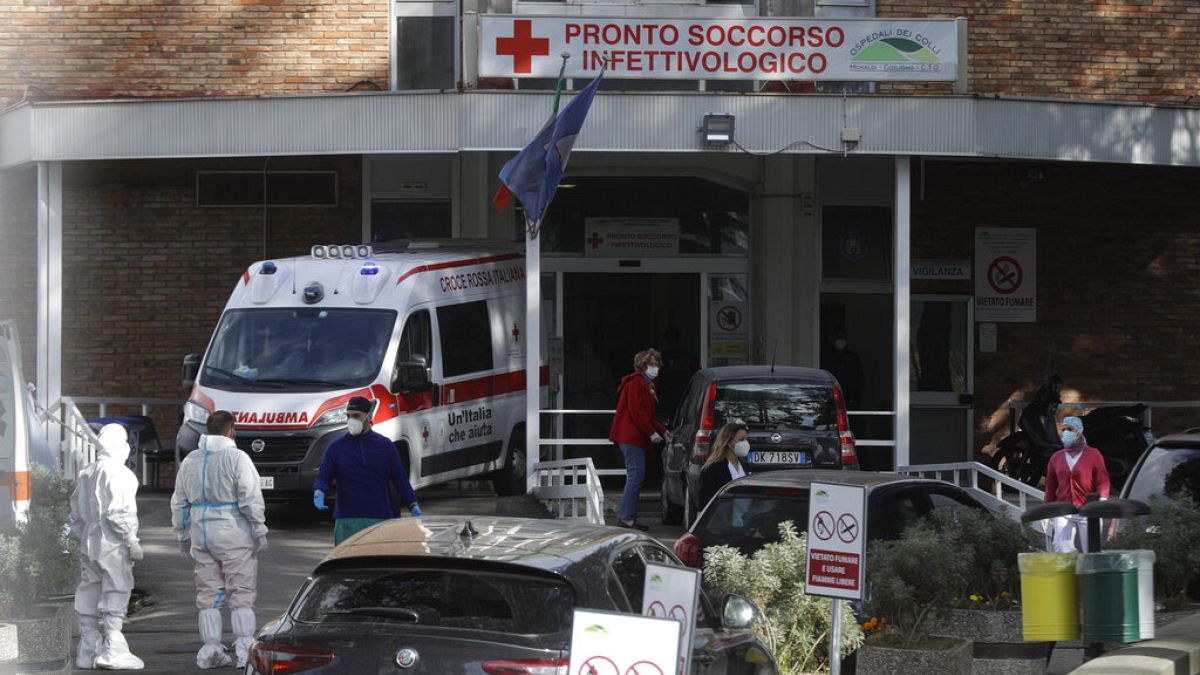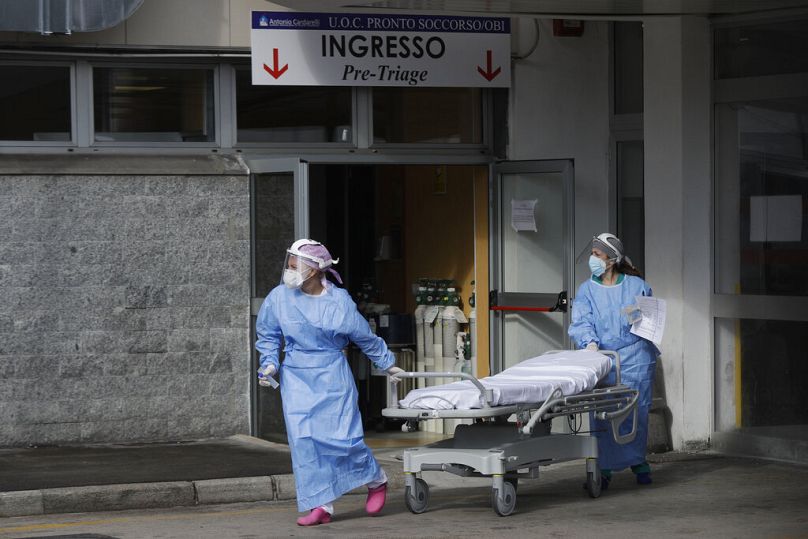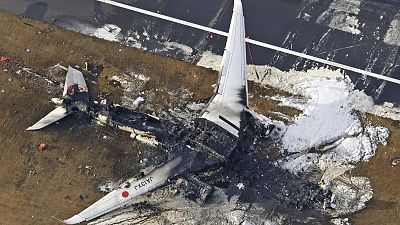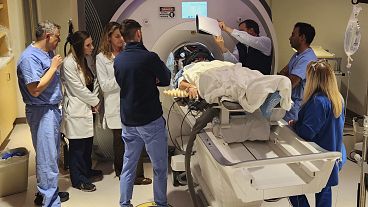The worst situation is in Rome and its region, where more than 1,100 patients are waiting to be admitted, according to the Italian Society of Emergency Medicine and Urgent Care.
Just a few days ago, ambulances were queuing outside hospitals in Rome. In other regions, such as Lombardy, patients are crammed into waiting rooms until a bed becomes available.
In cities such as Turin, hospital overcrowding has even led to a shortage of stretchers for patients.
Emergency departments in Italian hospitals are in chaos and on the verge of collapse.
The worst situation is in Rome and its region, where more than 1,100 patients are waiting to be admitted, according to the Italian Society of Emergency Medicine and Urgent Care (Simeu).
"We are trying to guarantee the service, but we are in an extremely difficult situation," Simeu president Fabio de Laco explained.
According to Simeu, the number of patients waiting in Piedmont has reached some 500, while in Lombardy and its capital, Milan, normal hospital admissions have been suspended in order to "free up" some beds for emergencies.
What is behind the hospital collapse?
The rise in hospital admissions, which has put pressure on the Italian health system, is due to an increase in "respiratory diseases, especially among the elderly".
"Covid has slightly decreased in the last week, flu is spreading, but other viruses have also caused 'overcrowding' in hospitals and a very strong pressure on emergency services," De Laco explained on Tuesday, according to local media.
In fact, in the week before Christmas, from December 18 to 24, "the influenza epidemic curve showed an incidence value never reached in previous seasons," according to the latest epidemiological bulletin from the Higher Institute of Health.
And the situation is far from stabilising, according to the Italian agency itself.
"Several regions have activated plans to combat overcrowding in hospitals and health companies in order to find additional beds, but since hospital beds are chronically scarce, in practice there is nothing else to do but take beds away from other specialties, such as surgery. Of course, this does not solve the problem," De Laco said.
As the situation worsens, doctors are becoming exhausted and there are a number of alarming articles in the Italian press: "Hospitals on the brink" was one headline in La Repubblica.
No rest for doctors
The president of the Simeu has pointed out that many doctors in Italy's public health system have not been able to rest over Christmas and New Year.
Holidays are a "luxury", he said, citing the Piedmontese capital as an example: "In Turin, for example, we didn't count on holidays over the Christmas period" and "the vast majority of doctors worked without interruption throughout the period".
Experts have urged Italians to get vaccinated, as the peak of influenza - expected next week when schools reopen after the holidays - has not yet been reached.
Regional councillors from the centre-left Democratic Party, Massimiliano Valeriani and Emanuela Droghei, visited two hospitals in the capital on Tuesday, the Umberto I and Sant'Andrea polyclinics, where they found a "very complex" situation due to the "large number of patients".
Both complained of "blocked ambulances, postponed operations, clogged emergency rooms and beds blocked by covid patients, all because of a vaccination campaign that started late".




